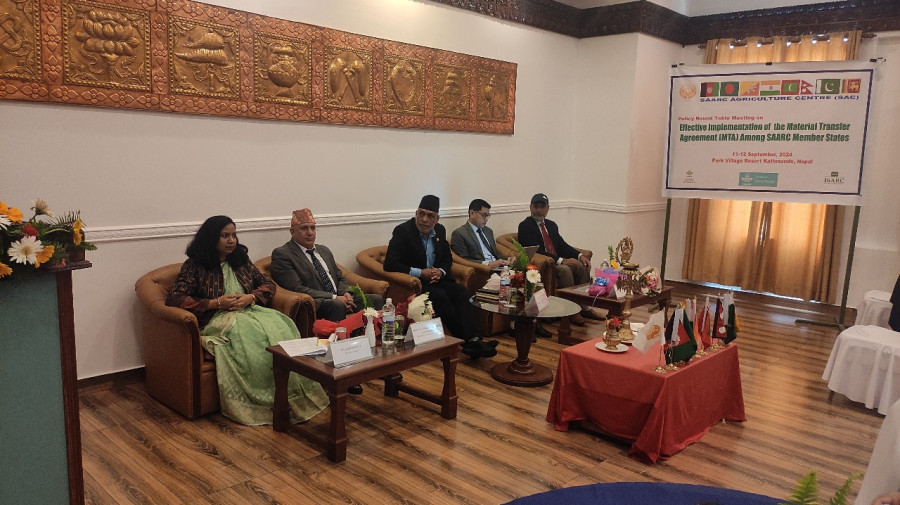National
SAARC agri meet discusses ways to make seed bank work
Delegates call for policy to facilitate transfer of seeds between member countries.
Post Report
Representatives from six member states of the South Asian Association for Regional Cooperation convened in Kathmandu on Wednesday for a two-day policy roundtable meeting on material transfer agreement (MTA)—a part of an accord on establishing the SAARC Seed Bank.
Speakers at the gathering stressed the need to make transfer of seeds between the member countries easy by clearing legal hurdles and through harmonisation of conflicting policies between the states and a state and the regional framework.
Delegates called on SAARC and its member states to implement the MTA within the regional grouping to allow for the seed bank’s successful operation.
They called for governments, especially India, to ease the cross-border transfer of seeds so that neighbouring countries can benefit from improved seeds and carry out agricultural research with germplasm.
Minister for Agriculture and Livestock Development Ramnath Adhikari inaugurated the event jointly organised by the SAARC Agriculture Centre (SAC) in collaboration with IRRI South Asia Regional Centre. The goal of the Dhaka-based Centre is to promote agricultural research and development and technology dissemination initiatives for sustainable agricultural development and poverty reduction in the region. The International Rice Research Institute, headquartered in the Philippines, works on abolishing poverty and hunger among people and populations that depend on rice-based agri-food systems.
The goal of the regional interaction, according to Ganga Dutta Acharya, senior programme specialist for the SAC, is to foster a collaborative environment in the region where ideas and materials particularly in agricultural research and development can be exchanged freely, and actionable outcomes developed.
Stressing that agriculture is a mainstay of the economy, and livelihood of millions of people in the region, Minister Adhikari said it was concerning that innovation and transformation in the agro-food sector have not witnessed desirable progress within the SAARC.
“An effective and expeditious implementation of the MTA is key to facilitate cross-border material exchanges, and promote innovation and invention in agricultural science,” Adhikari said.
He expressed his hope that there would be positive and far-reaching impacts on scientific progress, protection of intellectual property rights and ethical management of common means and resources through an effective utilisation of the regional arrangement.
Properly utilised, the mechanism could play a crucial role in facilitating collaborative research, development and innovation in agriculture in South Asia, the SAC said in a briefing to the event. However, the absence of a regulatory and facilitating mechanism for effective implementation of MTA had hindered genetic material transfer and impacted overall operation of the seed bank.
Shiva Raj Adhikari, vice-chairman of the National Planning Commission Nepal, and Jamal Uddin Ahmed, director at the SAARC Secretariat, delivered their remarks as special guests at the meeting.




 14.12°C Kathmandu
14.12°C Kathmandu













